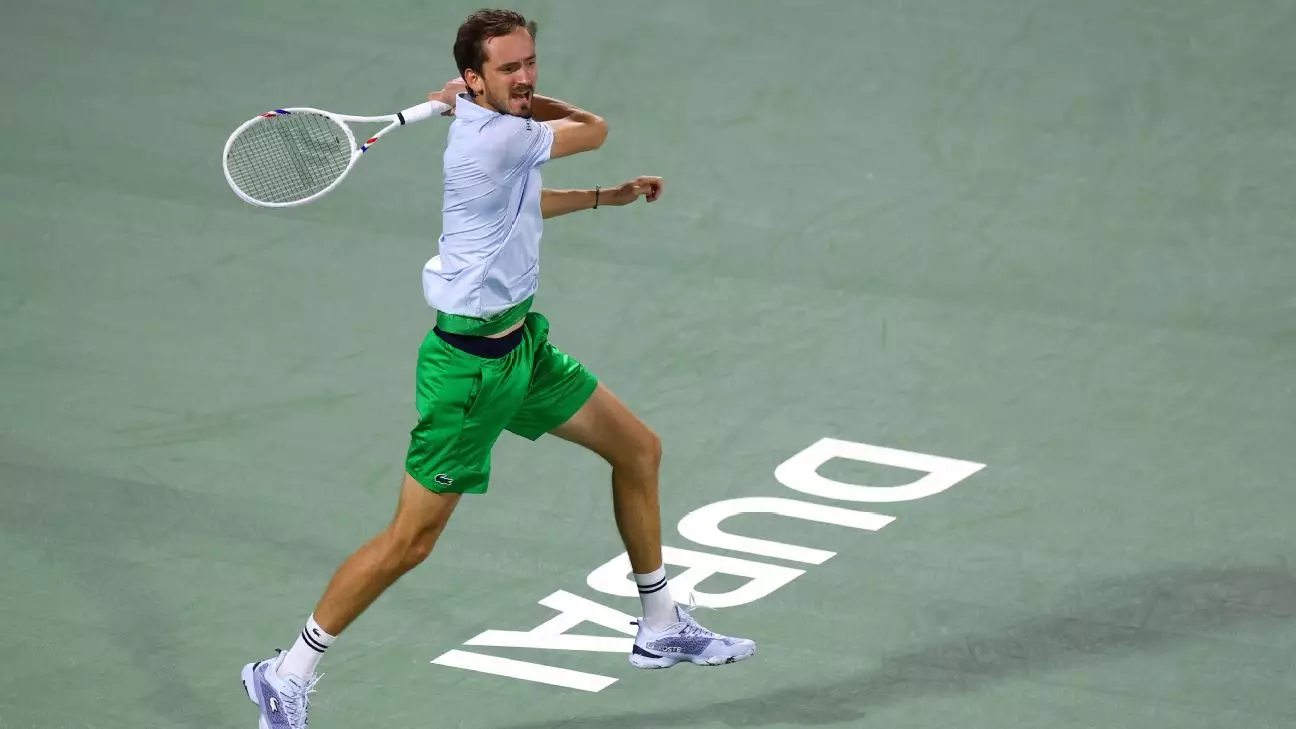In the fast-paced world of professional tennis, elite players often find themselves in situations that test their mental and physical agility. At the Dubai Championships, Daniil Medvedev’s journey to the quarterfinals epitomized this with an impressive performance against young French talent Giovanni Mpetshi Perricard. Medvedev has showcased remarkable adaptability on the court, particularly when dealing with high-speed serves that require quick reflexes and split-second decision-making.
The world may expect players to premeditate their returns against serves that soar past 143 mph, but for Medvedev, the game became a reflex-based challenge. “You don’t have any time, so it’s pure reflexes,” the Russian star remarked after his victory. This insight speaks volumes about the mental fortitude and focus required in tennis. Once a player is in the zone, overthinking often leads to hesitation, something that Medvedev managed to avoid, thereby streamlining his performance and enhancing his effectiveness against formidable serves.
The Match Dynamics
The match itself, a straight-sets victory for Medvedev, featured a consistent execution of strategies that underscore the importance of adaptability. He secured a break in each set, illustrating a deftness in handling pressure situations. Mpetshi Perricard, on the other hand, encountered difficulties that were significant in altering the match’s trajectory. With a staggering 44 unforced errors compared to his limited number of winners, his inexperience surfaced at pivotal moments.
This heavy error rate is indicative of the challenges many budding players face when squaring off against seasoned professionals. A significant factor in Medvedev’s success was not only his ability to capitalize on these errors but also his resilience in competitive conditions. Young players often lack the mental toughness needed to overcome setbacks, something that Medvedev navigated with relative ease.
Looking Ahead: The Path Forward
As Medvedev prepares to face Tallon Griekspoor, who advanced after a spirited victory over defending champion Ugo Humbert, the stakes continue to rise in Dubai. The upcoming match will test Medvedev’s ability to adapt once more, as Griekspoor presents a different style and set of challenges. This adaptability is emblematic of what separates top players from the rest: the capacity to recalibrate strategies based on opponents.
Moreover, Marin Cilic’s advancement adds another layer of intrigue as he bests Alexei Popyrin to meet Felix Auger-Aliassime. The unfolding narrative in Dubai is not just about individual match wins but is an exploration of resilience, strategy, and mental acuity in high-stake situations.
Medvedev’s pathway in the Dubai Championships illustrates the essence of elite tennis—marked by rapid reflexes, adaptive strategies, and unyielding focus. As the tournament progresses, the language of resilience and strategic maneuvering will continue to dominate the court.


Leave a Reply